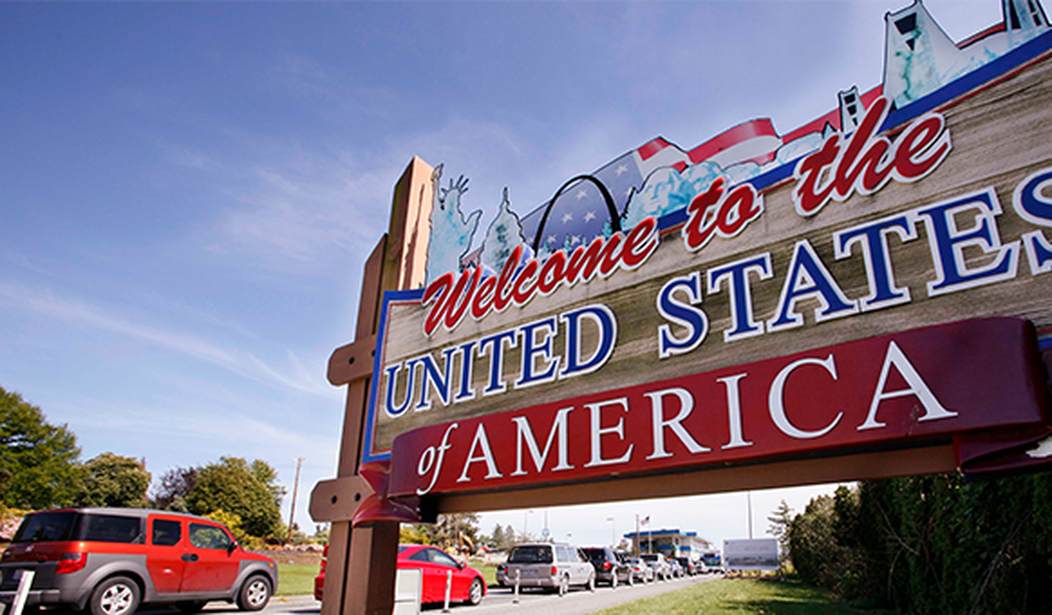Canada extended Covid-19 restrictions on non-essential international and US travel until July 21 last week. On Monday, the Biden administration extended non-essential travel restrictions to both Canada and Mexico. The process of re-opening borders is a slow one. COVID-19 pandemic concerns shut the U.S. border to Canada and Mexico for non-essential travel in March 2020. Travel restriction renewals are on a month-to-month basis now.
As we have said, the government is planning measures for fully vaccinated Canadians, Permanent Residents, and others who are currently permitted to enter Canada and will provide further details on Monday, June 21.
— Bill Blair (@BillBlair) June 18, 2021
Talks between the United States and Canada last week did not result in setting a specific threshold to trigger lifting the restrictions. The Department of Homeland Security announced that the United States will do as Canada is in extending the ban on non-essential land travel until July 21, when the next decision is made.
The U.S. government held working-group meetings with Canada and Mexico on the travel restrictions last week and plans to hold meetings about every two weeks, U.S. officials told Reuters.
Homeland Security said in a statement it noted “positive developments in recent weeks and is participating with other U.S. agencies in the White House’s expert working groups with Canada and Mexico to identify the conditions under which restrictions may be eased safely and sustainably.”
Some U.S. lawmakers and border community officials are pushing for the lifting of land travel restrictions, especially with the summer vacation season upon us. Businesses continue to lose revenue because of the restrictions. Senator Ted Cruz released a statement expressing his frustration. Texas businesses along the Mexican border are suffering from land travel bans, as are families who travel back and forth for visits. Cruz points to the irony of the southern border is wide open to illegal migrants yet people trying to cross the border legally are not allowed to do so.
“Amid a growing illegal immigration crisis on our southern border, President Biden is continuing to prevent lawful, legitimate border crossings by extending these restrictions. Our border communities like Laredo, El Paso, McAllen, and Brownsville are suffering immensely because important land ports of entry remain closed to everyone except those deemed ‘essential’ traffic by the Biden administration. ‘Non-essential’ travel into the United States from land ports of entry for shopping, visiting friends and family, and casual visits are not allowed.
“Through this extension, the Biden administration is sending a clear signal that illegal immigration is tolerated – and even celebrated – while those who choose to enter legally should turn back— it’s an insult to the rule of law and a rebuke of common sense that’s driven more by politics than the well-being of Americans.”
The travel restrictions don’t apply to air travel and sea travel.
The restrictions apply to those who travel on foot or vehicles, ferries, rail or to coastal ports of entry, as well as immigrants and non-immigrants traveling for purposes that U.S. authorities do not consider essential. Restrictions don’t apply to commercial air or sea travel. U.S. citizens and legal permanent residents (LPR) are allowed to return to the United States during this period.
“To reduce the spread of #COVID19, the United States is extending restrictions on non-essential travel at our land and ferry crossings with Canada and Mexico through July 21, while ensuring access for essential trade & travel,” DHS tweeted Sunday afternoon.
To reduce the spread of #COVID19, the United States is extending restrictions on non-essential travel at our land and ferry crossings with Canada and Mexico through July 21, while ensuring access for essential trade & travel.
— Homeland Security (@DHSgov) June 20, 2021
Canadian Prime Minister Justin Trudeau is standing firm in his demand that the Canadian border will remain shut until 75% of Canadians have received the first dose of a COVID-19 vaccine and 20% have received both doses. Some American lawmakers say it is unacceptable that Canadian and United States officials can’t reach an agreement on thresholds in order to lift the restrictions.
“The inability of the U.S. and Canadian governments to reach an agreement on alleviating border restrictions … is simply unacceptable,” Democratic Representative Brian Higgins and Republican Representative Bill Huizenga, co-chairs of the Canada-U.S. Interparliamentary Group said on Friday.
Working-group meetings are also being held on relaxing travel restrictions between the U.S. and the U.K. and the European Union. The U.S. officials don’t expect the Biden administration to lift restrictions before July 4.
Both Canada and Mexico have experienced a much slower roll-out of COVID-19 vaccinations than the U.S. Mexico’s vaccination rate is particularly dismal. Trudeau addressed the frustration felt by Canadians yet isn’t willing to loosen up his government’s tight hold on people. One thing we’ve seen over and over again during the pandemic is that bureaucrats and lawmakers relish the newfound power to control the lives of people.
“I get it, it is frustrating for a whole bunch of people who just want to get back to normal,” Trudeau said Friday. “I get people’s impatience, both in the tourism industry and individual Canadians who want to travel, but from the very beginning we as a government have been there for Canadians. And that means doing what’s necessary to keep them safe.”
He added: “We’re not out of this pandemic yet. We have to hit our targets of 75% vaccinated with the first dose, at least 20% vaccinated with the second dose before we can start loosening things up because even a fully vaccinated individual can pass on Covid-19 to someone who is not vaccinated.”
Trudeau and Joe Biden may not be ready to get back to a more normal way of life but Canadian and American residents are more than ready. With the widespread availability of COVID-19 vaccines, they are going to have to accept the science and help people go about doing that.








Join the conversation as a VIP Member